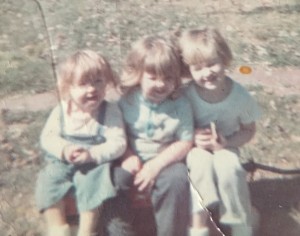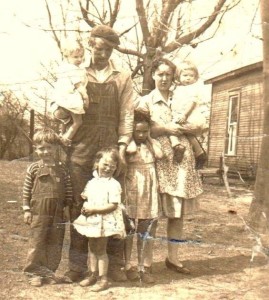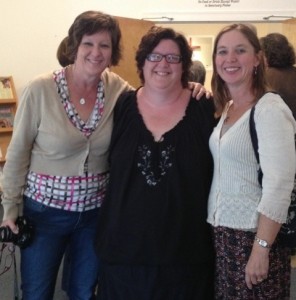Today I read a great story about Delta Airline pilots who broke tried and true rules of flight by returning to the gate to get a grieving family. Through no fault of their own they had missed the last connection of the day to Tennessee where they were going to attend their father’s funeral. The pilots saw their crying and grieving faces in the window, and though it’s true, I was not in the cockpit, I’m pretty sure both of them looked at each other, and said something to the effect of “To hell with it,” and proceeded to carefully and competently turn that jet around and return to the gate for this distraught family.
My husband is a commercial pilot, and on top of that, I do a fair amount of air travel myself. I know the seriousness of that decision. It is definitely breaking the rules. What could have possessed the minds or hearts of these pilots to put their own jobs in jeopardy to do such a thing?
All of us have had a “To hell with it” moment in our lives. As the New year of 2016 is upon us, once again, we are contemplating past and present resolutions: I am going to lose weight. I am going to get fit. I am going to get control of my high blood pressure or type 2 Diabetes. I am going to attend church. I am going to take my kids to church. I am going to be more generous, get out of debt, quit swearing, (I know-the irony of this post!) Maybe you have committed in this New Year to tithe, or to give some of your earnings to good causes. Maybe you have committed in this New Year to being a more loving parent or spouse, to institute game night with your kids, or to find time to say yes to a friend in need. Maybe you think, “This is the year I am going to have company over for dinner, or invite people to my house.” Maybe you’ll write that book or finish school, or go after the dream job you have always wanted. I will submit to you that we can make resolutions all day long. We can say, “I’m going to try.” But until we face the truth of our absolute unwillingness to change that bad habit or start that good habit; until we face the reality that “trying” is really defined as, “I’m talking about it; my lips are moving, but I’m not demonstrating practical change,” until we say “To hell with it, I can do this,” I’m not sure that we are ever going to make the decisions that are the healthiest, or best for our family, our marriages, or our professions. Having defined “trying,” we should also define “To hell with it.” The latter is on some level, abandoning traditional norms or even rules. Traditional norms, absolute rules, prevented the Delta pilots from getting that family on board. “To hell with it” said I am going to make an exception (albeit in their case-isolated and unusual). We need to decide we are going to make exceptions in our lives from social norms and traditions, and from our own poor behavioral patterns, in order to achieve these very important goals. Spending every dime we have at the expense of paying off our debt or saving for our futures is pretty typical among Americans. We have to quit “trying” to do the right thing with our money and get real about budgeting, planning, and assigning each dollar a job. We need to quit “trying” to improve our marriage, and look on our calendars and block out a date night or (for those of us married to pilots), a date day. We need to quit wishing our spouse would conform to all our desires and find positive and possible ways to adjust my attitude. The same goes for opening up our homes to others. Quit “trying,” and add some margin to your calendar each month. Find a Saturday night that’s open, dedicate it on your calendar and send out an email to your friends.
I absolutely love the idea of “To hell with it.” Some of you (I know) find this title understandably, a coarse use of language. But in its literal sense, I find it very appropriate. Sending the negativity in our lives, metaphorically as it may be, to the depths of hell where it belongs may be the Single. Solitary. Strategy. for our success. Sometimes you have to just quit. Quit procrastinating. Quit Trying. And as the saying goes, “To hell with it.” Ask the girl out. Ask the girl to marry you. Leave the dead-end job you hate and pursue the job you love. Give a dollar to the homeless guy at the busy intersection near your house without going through the same old twenty reasons in your head why this complete stranger doesn’t deserve your kindness. Volunteer. Start exercising. The endless possibilities effect not only your happiness and fulfillment but also that of your family, spouse, children, and co-workers. What do you have to do to make this happen? Make a list. Get on it. Think about what has not worked for you in the past and say “It ends here.” What has not worked for you over and over? That jelly donut? That dead-end relationship? That expensive mortgage? Get rid of whatever jelly donut is keeping you from becoming what you need to be. I have had so many “To hell with it” moments in my life. But unlike what you might be thinking, “To hell with it” is not an abandonment of common sense. In this case, it is more an embracing of common sense and what you know to be the right thing. It is the climactic point of a journey you have already been on for years, but perhaps have not grasped fully the practical steps needed to make the same old New Year’s resolutions a reality. “To hell with it. I’m going to do this thing.” It doesn’t mean you abandon your family to become a rock star. It does mean you abandon the fears that keep you locked into the same old cycle of failed resolutions. Oh and one more thing, it also doesn’t mean that if you’re sitting in the Starbucks at the airport with your ear buds in and don’t hear your boarding call, the pilot is going to come back and pick you up. Nope. Not going to happen!
Category Archives: Political and Social
What do we owe them?

How do you remember your past-your growing up? Difficult? Easy? Carefree or demanding? Rather than remember, is it one you’d soon forget? Mine has a mixture of both. When I was just shy of 6 years old, I stood with my sisters on the shore of an old coal mine strip pond as we called it, in rural Indiana watching my young parents drown in a freak fishing accident. This would truly define much of who I was to become in the years to come. We three girls went to live with my maternal grandparents. We were very poor by worldly standards, but though we were low on money, we were high on vegetable gardens and a few livestock. I bet you thought I was going to say, “Though we were low on money, we were high on love.” Well, not really. I don’t believe in painting an unrealistic picture of my life after the deaths of my parents. I’ll never be accused of overestimating the affection coursing through our home as a child. My oldest sister was separated from us when she was only 13 years old to a teen home 2 hours away. I was 10. I would only see her every other weekend and holidays for our remaining childhood years. We were afforded no counseling and no time to grieve. No one was reading me bedtime stories, hanging my artwork on the refrigerator, or telling me I could grow up to be whatever I wanted to be. I didn’t learn how to communicate well in relationships. It was a lot more about resilience than it was warm fuzzies. It was primarily about work, responsibility, and self-initiative. Less about love, tenderness, and family vacations. This is not a plea for pity. It’s just a story. And like so many others, my past is inextricably linked to the past before me. That renders understanding and insight for all us in better understanding our American roots. My grandparents did the very best they could with what they had. I could never in a million years repay them for their contributions in my life, and in spite of a childhood lacking in tenderness, they loved us still in the only ways they knew how. I didn’t have a lot, but I had everything they were capable of giving me. They did not withhold affection out of spite. Their love language-their only love language-was service. Before you say, “Oh that’s so sad,” while on one level it is, on the other hand, I did learn how to survive difficult ordeals, orchestrate food for large groups of people, and the value of hard work and perseverance. I (and my sisters) absolutely entered young adulthood with an insufficient lack of emotional coping skills. Undoubtedly, we were at a clear disadvantage when it came to understanding what it meant to nurture and to be nurtured. There were scars just like there are for many of you. Nonetheless, while we had a “raising” that didn’t render itself as always rosy or self affirming, we can say with 100% assurance that we weren’t nurtured at home because well, nurture just wasn’t in their nature. In fact, it was their raising that made them bull-headed and even cold at times. They and their parents before them had survived both world wars, Vietnam, Korea, bad politicians, good politicians, The Great Depression, short life spans, and grueling manual labor both at home and at work. Indeed my grandparents were an intricate part of that generation who built up American industry, the backbone of American farming and post depression economic growth. They stormed the beaches at Normandy, lived and died in The Bataan Death March, and saved the free world from tyranny. They worked the tough, hard labor jobs that rebuilt a post war America into a global power. This generation was not one that excelled at nurturing. They excelled at survival. This was also reflected in their huge sense of community. Because of their experience in the war and the Depression, they recognized (better than we do today) that people work better and accomplish more together than they do apart. Thus in war-time, they gave up their “day jobs” to build Higgins Boats in Louisiana, and sell war bonds on Main Street. In snow blizzards, whoever owned a tractor, plowed the driveways of those who did not. Potluck dinners for years, served to feed the masses while accomplishing their tasks at hand, planting fields, raising barns, or building fences. When someone was sick and homebound, there was undoubtedly a neighbor nearby to bring them hot soup or cart then to the doctor if necessary. Hard work wasn’t an option. Rest was overrated. Everyone was working the garden, the livestock and doing laundry. (NOT in an automatic washer and dryer that we enjoy today!)
Not surprisingly, my grandparents, from this very generation, lived impoverished lives growing up and likewise when raising their own children, my mother and her siblings. Their income was meager. Inevitably their days were long and difficult. The picture here truly speaks 10000 words.

On the left is my great-uncle, actually my grandma’s youngest sibling of 14. My great-grandmother was already dead in this picture. My grandmother took her brother in when he was 16 months old. She had other small siblings in her home as well. The oldest daughter between my grandparents is my grandma’s first daughter from her first marriage. That husband died when she was only 17 or 18 in a work related accident. There was no OSHA then. There were no annuities for my grandmother, a widow and single mother at 17. A year later she married my grandfather. Sometimes you married or you starved. They had 5 children. That’s their first-born, my aunt you see in the front wearing glasses, and my grandparents holding the twins in their arms: my mother and her twin sister, and later two additional boys came along (not yet born when this picture was taken.) It seems counterproductive to those of us ever so enlightened by this modern society in which we live (sarcasm intended), that such impoverished folks would choose to have so many children. Having offspring was much more of a cultural expectation in America in those days than it is now. Furthermore, this was the generation of Americans that populated our country. The baby boomers born in post war American between 1946-1964 (give or take a year), was literally the largest generation of Americans born in U.S. history. (Yours truly says thank you for that!)
Today we live in an incredibly great country. One that is still full of promise and opportunity. But it is also one of the most self-entitled, materialistic, and self-centered cultures that American has ever known. This I believe is the American Dream gone rogue. Once upon a time the American Dream was defined simply as the opportunity for home ownership in a free society where every citizen was free to innovate, create and live peaceably. But that definition of the American Dream has since been distorted, the original tenets of which have been misused and misrepresented by scores of politicians hoping to strike a chord of unity with a society that has distanced themselves from their past, away from their poorer, less formidable ancestors. Even though, it was their ancestors who blazed the freedom trail for us through hard work, war, and personal sacrifice, so that we could now “wallow” in the plunder. I don’t want to be an American who simply sits back and wallows in what my grandparents have built. I want my citizenship to be one that pours back into the communities I live in-the communities bequeathed to me by generations of Americans before me. What do Americans of the 21st century owe them? Impoverished though they were; unskilled communicators, slow to show affection, demanding, and maybe even harsh? We owe them everything.

Pull out the pictures-you know the ones! They’re in the deep drawer of your grandma’s bedroom chest of drawers full of black and whites (reel to reel if you’re lucky) Ask someone who will know: “Who’s that?. What did they do for a living? How did they die?” You may discover amazing and healing facts about your relatives, as well-about yourself and who you are and from whence you came. And in the process, learn something about your America.
